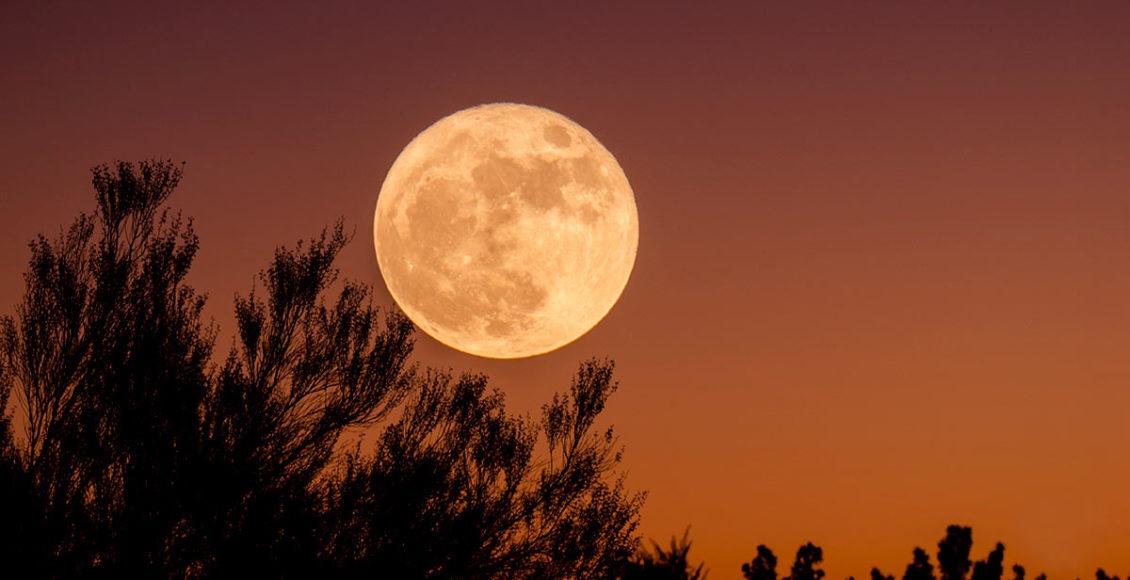Whenever a full moon appears graciously on the horizon, there always tends to be a certain mystery surrounding it.
How can it not?
It is just sat there majestically in the night sky and, of course, people took it upon themselves to find the hidden meaning behind its presence there, as they do with most occurrences of this sort.
So, if you have ever wondered what the full moon might bring with itself, here are five myths in regard to its presence that you might want to know before another one comes along!
Myth number 1: Full moons make you crazy
The first one is no wonder, as even the word ‘lunatic’ originates from the Latin word “luna” which also happens to be the name of the ancient Roman moon goddess. Ever since ancient times, the full moon has been linked to odd, peculiar, or flat out ‘insane’ behavior. Examples of such being any illegal activities one might think of, violence, sleepwalking…and, of course, turning into werewolves.
Interestingly enough, for thousands of years, medical professionals were convinced of the existence of a correlation between ‘mania’ and the full moon. Even Hippocrates, who is regarded as the father of modern medicine, has written as early as the 5th century B.C. that:
“One who is seized with terror, fright and madness during the night is being visited by the goddess of the moon.”
Although this ‘theory’ has long been disregarded, some of us still have the tendency to believe that the full moon may make us act in certain ‘crazy’ ways. However, don’t worry, there will be no moon howling happening any time soon. Or will it?
Myth number 2: The full moon is baby-making time
Early on in history, people have believed that the moon has the capability to determine or regulate when a woman could become pregnant- most probably due to the fact that menstrual and lunar cycles are of the same length. Hence, it becomes quite logical why many ancient religions had some sort of manifested ‘moon worship’ in their practice. Moreover, to further this point, many ‘lunar goddesses’ were displayed as well-known and prominent figures in mythologies worldwide.
According to other theories believed to this day, full moons could have the potential to increase the libido of the female population and, thus, result in higher chances of pregnancy. Moreover, it is also considered that the ‘full moon phase’ plays a role in the higher rates of labors on that day, as many mothers rush to the hospital in anticipation of their unborn offspring. However, there is little to no statistical evidence backing up such claims and a large number of professionals in the area disregard this myth as a ‘figment of the imagination.’
Myth number 3: Dogs and cats are affected greatly by it
Quite a few people, veterinarians included, hold the belief that dogs and cats have a bit of a crazy time during the full moon. It’s as though some sort of ‘lunar force’ taps into the psyche of the animals and interrupts their normal functioning.
To be fair, studies do show an uprise in emergency room visits for both cats and dogs before, during and after full moons. Nonetheless, this circumstance is highly unlikely to be due to the lunar phase itself, but more plausibly because of more simple grounds. Namely, as there is more light on the evenings of a full moon, the animals stay until later in the night. Therefore, they could potentially find themselves in all sorts of tricky situations because of this.
More time awake equals more time and opportunities to get in trouble.
Myth number 4: Kids get hyperenergetic and cannot go to sleep
Another widespread myth throughout cultures is that young children also display hyper behavior during the time of a full moon. However, scientists did not waste time in testing this theory and found out that…well, children are always active and hyper.
Regardless of it being a full, half or crescent moon, kids have the tendency to enjoy an active, good time whenever they deem possible, especially before bedtime. Therefore, in accordance with published research on the matter, sleep was only “1percent less during the full moon” phase, making it “not clinically meaningful”.
There you have it, your kids most probably will not climb to the ceiling during full moons. Well, at least not because of the full moon itself.
Myth busted.
Myth number 5: The moon doesn’t affect adult sleep patterns
Well, in all actuality, scientists from Basel University, Switzerland, have disproven this statement with their research and were as surprised as you might be by their results. Adult people do statistically get less sleep during a full moon, as they found there is a 5-minute increase in the process of falling asleep, as well as a 20-minute general decrease of sleep time. Moreover, during the full moon, people spend a good 30 percent less time in a state of deep sleep.
The grounds for this phenomenon have not yet been confirmed. However, there is speculation that it may have something to do with the so-called “circadian” rhythms, or more simply put- our natural daily cycles. As Michael Hastings, a research scientist at Cambridge University puts it- a connection between the lunar cycle and sleep deprivation could potentially be an”echo of our evolutionary past. He also adds:
“If you were a hunter-gatherer on the African savanna, you may want to be out hunting at the full moon.”
However, as mentioned above, further research on this topic must take place in order to confirm or disprove this exact theory.
In conclusion, the full moon brings a plethora of myths surroundings its presence and power over the human species.
While some, as per the example of sleep deprivation, may be true, others are found to be mere superstition and should not be taken as seriously.
Nevertheless…happy moon howling the next time it comes around!



